I went inside the secret airplane compartment where flight attendants sleep on long-haul flights and was shocked by its size
Thomas Pallini

Touring SAS Scandinavian Airlines' Airbus A350-900 XWB.Thomas Pallini/Insider
- Flight attendants don't enjoy the same luxurious seats that some of their passengers do on long-haul flights.
- Secret compartments in the back of airplanes have bunks for flight attendants to rest.
Airlines are constantly raising the bar when it comes to luxury and comfort for passengers as airliners are flying further than ever before.
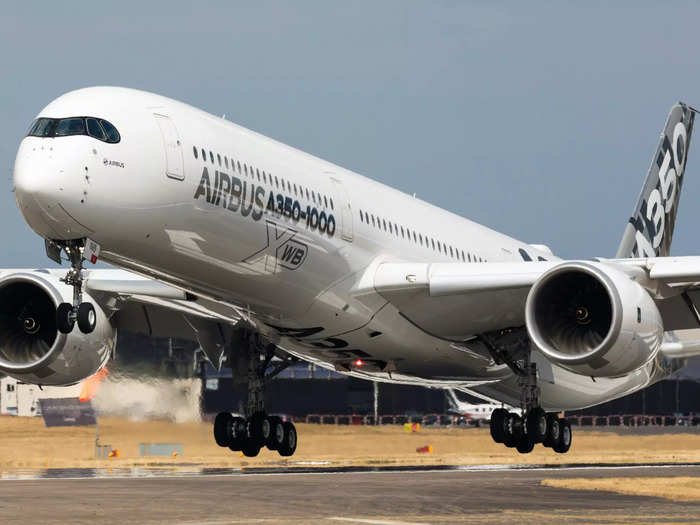
An Airbus A350-900 XWB aircraft.
Andreas Zeitler/Shutterstock.com
But while passengers reap the benefit of glitzy lie-flat business class seats and even couches in economy on some airlines, not all onboard get to enjoy the same level of opulence, namely flight attendants.
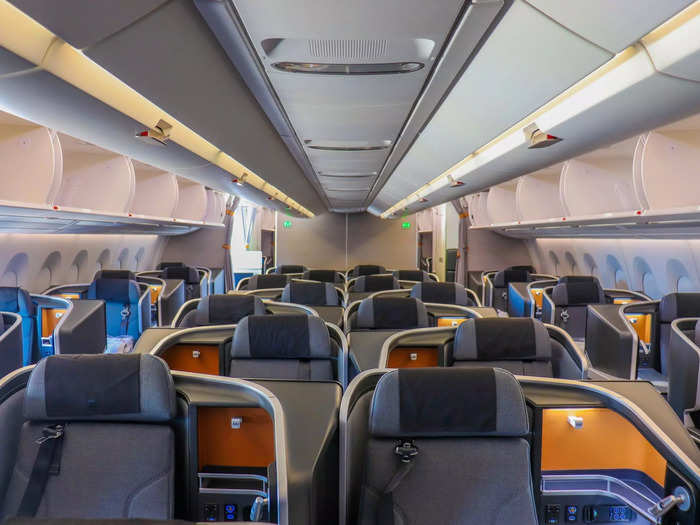
Touring SAS Scandinavian Airlines' Airbus A350-900 XWB.
Thomas Pallini/Insider
Hidden in the back of wide-body aircraft are the small compartments in which flight attendants spend their downtime. They're aptly named crew rest areas and are where flight attendants will go when they have a break from service or their other responsibilities.
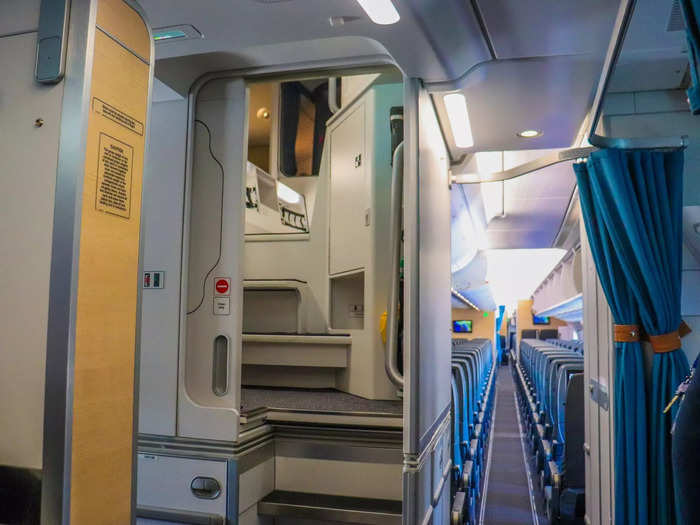
The crew rest area on an Airbus A350-900 XWB aircraft.
Thomas Pallini/Insider
The areas are off-limits to passengers and even their entryways are discretely embedded into an aircraft's architecture to help protect against unwanted visitors.
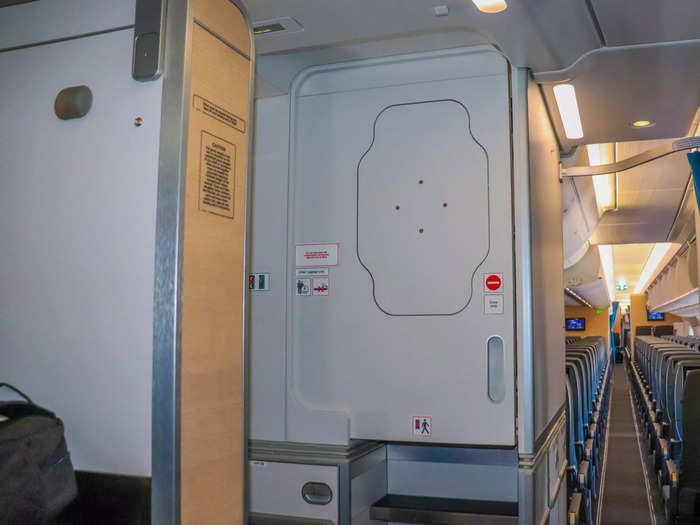
The crew rest area on an Airbus A350-900 XWB aircraft.
Thomas Pallini/Insider
On a recent tour of an Airbus A350-900 XWB, I went up into the crew rest area to see how the cabin crew spend their breaks. Here's what it was like.
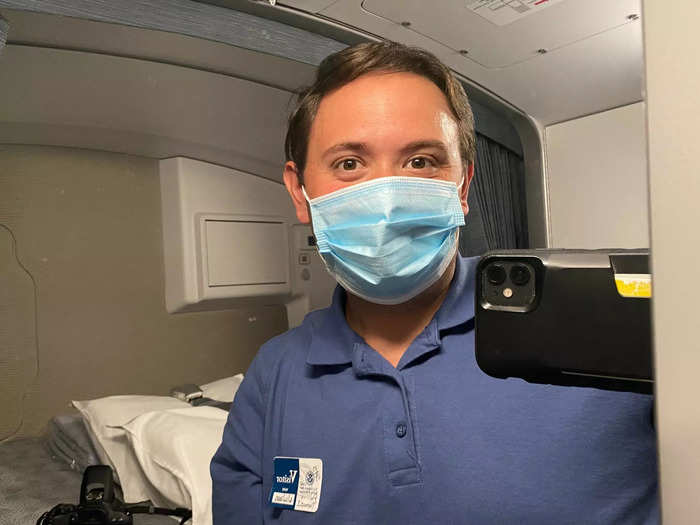
The crew rest area on an Airbus A350-900 XWB aircraft.
Thomas Pallini/Insider
Crew rest areas for the cabin crew are often located towards the back above the economy class cabin. I could very easily see how the average passenger might walk right past the small ladder and doorway that's simply marked "crew only."
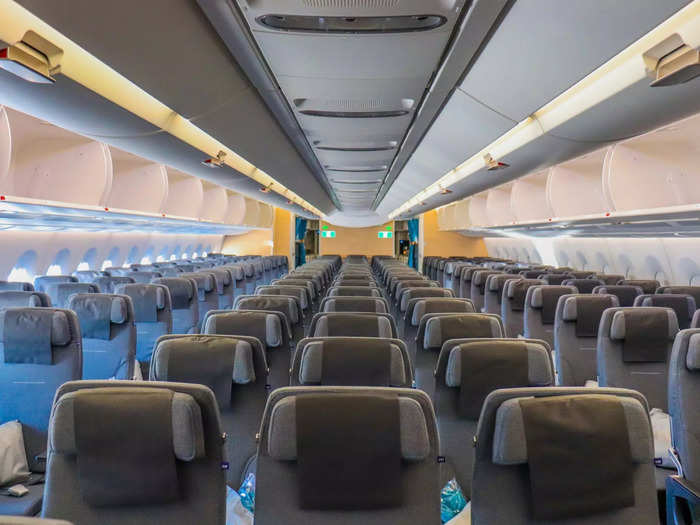
Touring SAS Scandinavian Airlines' Airbus A350-900 XWB.
Thomas Pallini/Insider
Its location makes sense as it's hidden away from passengers in an area not frequented by many passengers. In all my years of traveling, I've never seen a flight attendant climbing up into the bunks.
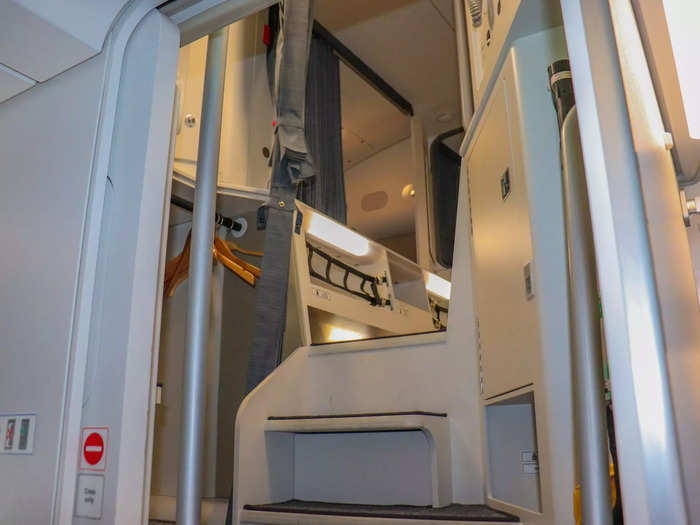
The crew rest area on an Airbus A350-900 XWB aircraft.
Thomas Pallini/Insider
Just a few steps, though, and I couldn't even tell that I was on an airplane anymore. There were no passenger seats or even windows in the space, just bunks.
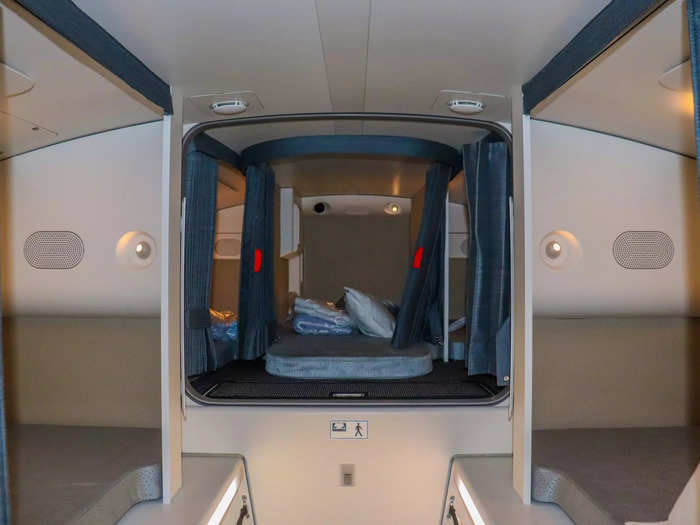
The crew rest area on an Airbus A350-900 XWB aircraft.
Thomas Pallini/Insider
Only six bunks comprised the crew rest area, with not much room for anything else.
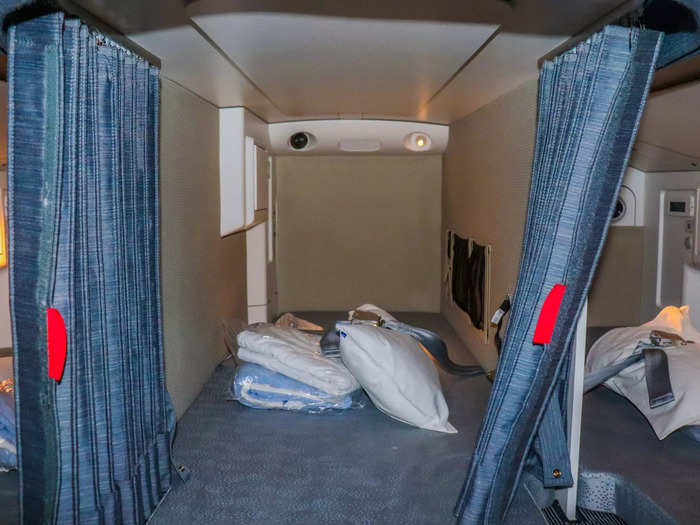
The crew rest area on an Airbus A350-900 XWB aircraft.
Thomas Pallini/Insider
Storage is limited to a small closet with a coat rack to hang uniforms during the rest period.
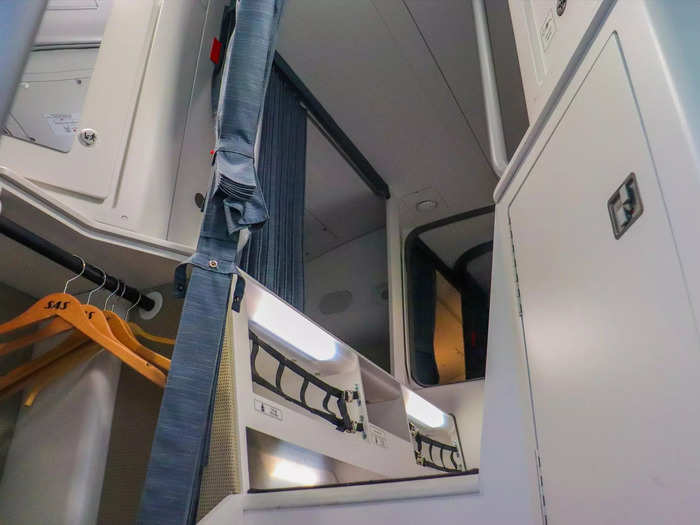
The crew rest area on an Airbus A350-900 XWB aircraft.
Thomas Pallini/Insider
Pockets along the main aisle also had some space in which to store items.
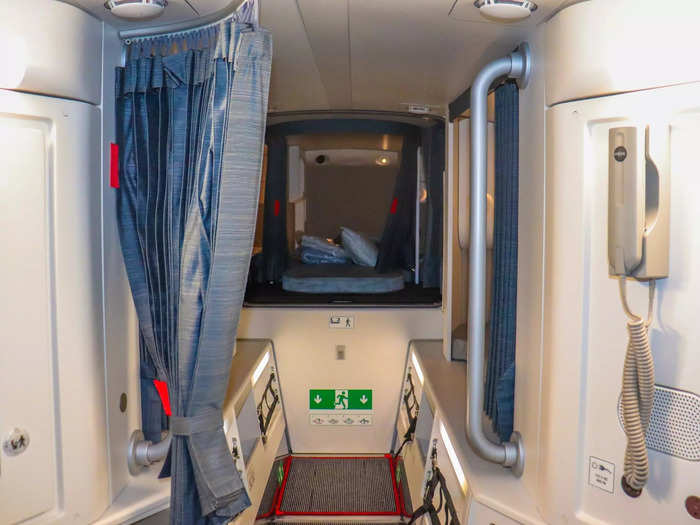
The crew rest area on an Airbus A350-900 XWB aircraft.
Thomas Pallini/Insider
Each bunk came equipped with a pillow and blanket kit wrapped in a seatbelt. It looked to be similar to what economy passengers receive in the cabin below.
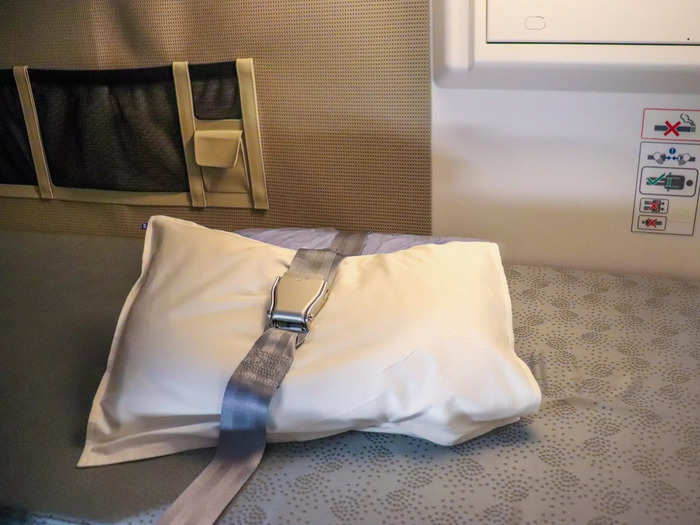
The crew rest area on an Airbus A350-900 XWB aircraft.
Thomas Pallini/Insider
Seatbelts are required in the bunks in case of turbulence as even flight attendants must abide by the seatbelt sign.
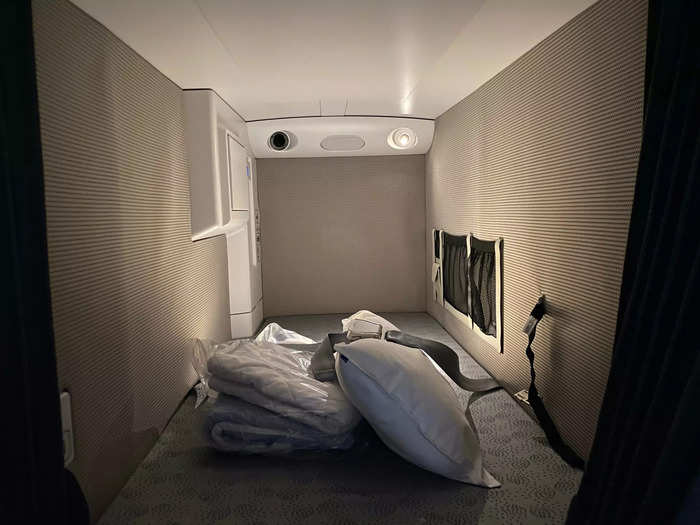
The crew rest area on an Airbus A350-900 XWB aircraft.
Thomas Pallini/Insider
But other than a pillow, blanket, and reading lamp, the bunks were devoid of any form of entertainment. The in-flight entertainment screens that graced the cabin below were nowhere to be found in the crew rest area.
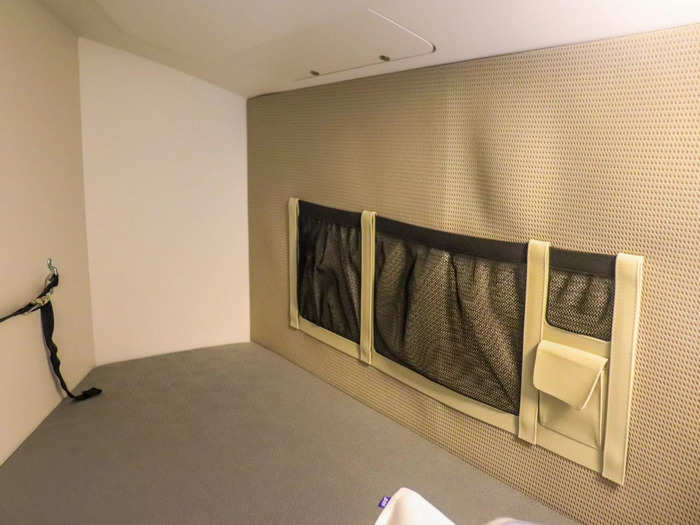
The crew rest area on an Airbus A350-900 XWB aircraft.
Thomas Pallini/Insider
The reasoning behind that is because airlines want their staff to use the space for what it's intended, rest. Watching movies or television shows would only serve as a distraction from that.
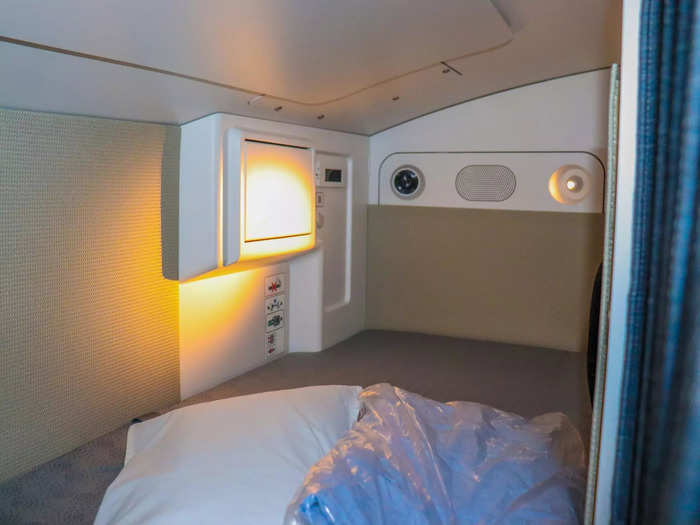
The crew rest area on an Airbus A350-900 XWB aircraft.
Thomas Pallini/Insider
I'm sure it doesn't stop flight attendants from using their phones, however, and a curtain provides privacy in each bunk.
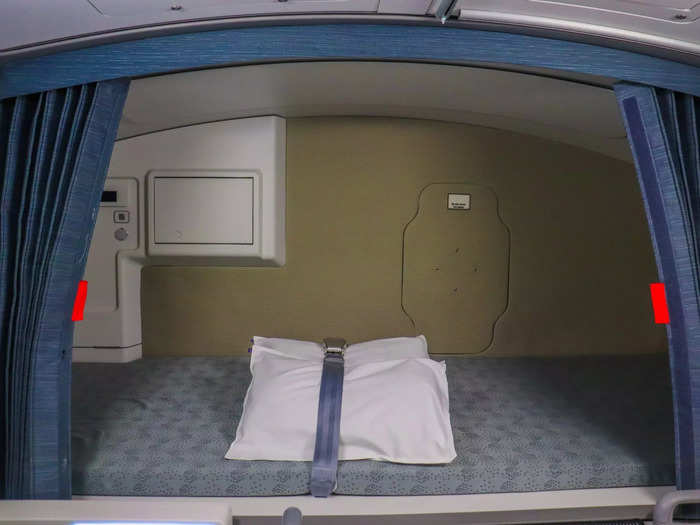
The crew rest area on an Airbus A350-900 XWB aircraft.
Thomas Pallini/Insider
I didn't get a chance to lay down in one of the bunks but it was hard to imagine resting in such tight quarters. Though, I'm sure it's a better alternative to, say, the last row in economy class.
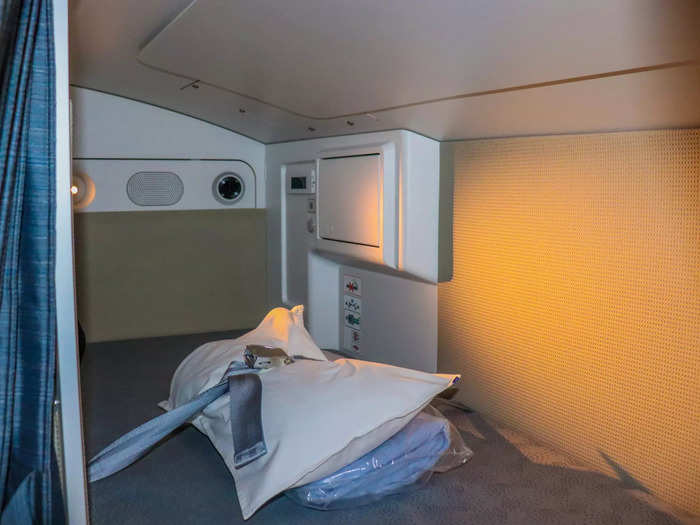
The crew rest area on an Airbus A350-900 XWB aircraft.
Thomas Pallini/Insider
Plus, the commute isn't too bad and just requires descending back down the steps in the galley. Flight attendants can also communicate with other crew members using an intercom in the rest area.
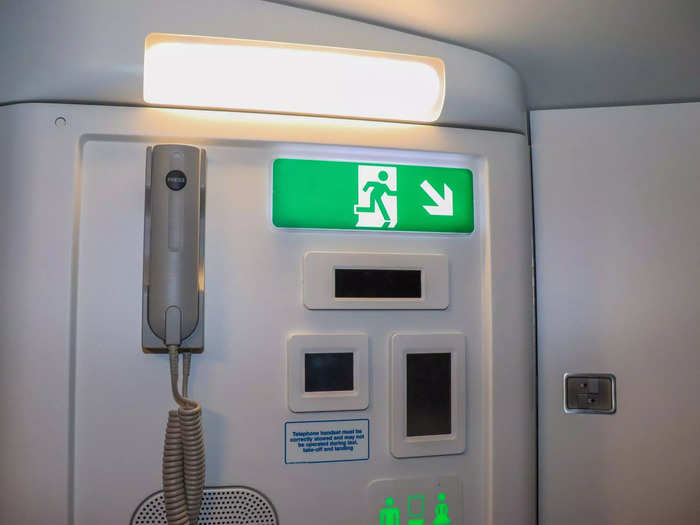
The crew rest area on an Airbus A350-900 XWB aircraft.
Thomas Pallini/Insider
To be honest, the compartment resembled the living quarters of what I'd imagine a futuristic space ship might look like. Having zero gravity would certainly have helped with moving around this space, for sure.
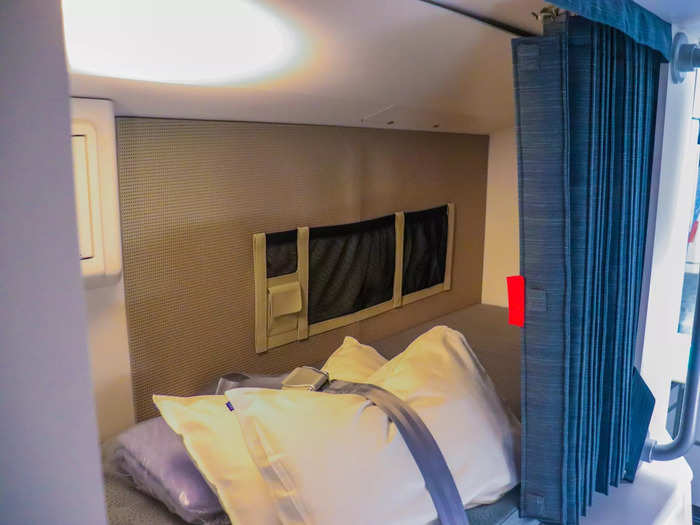
The crew rest area on an Airbus A350-900 XWB aircraft.
Thomas Pallini/Insider
Pilots, alternatively, have their own rest areas towards the front of the plane near the cockpit. They don't have it much easier than flight attendants.
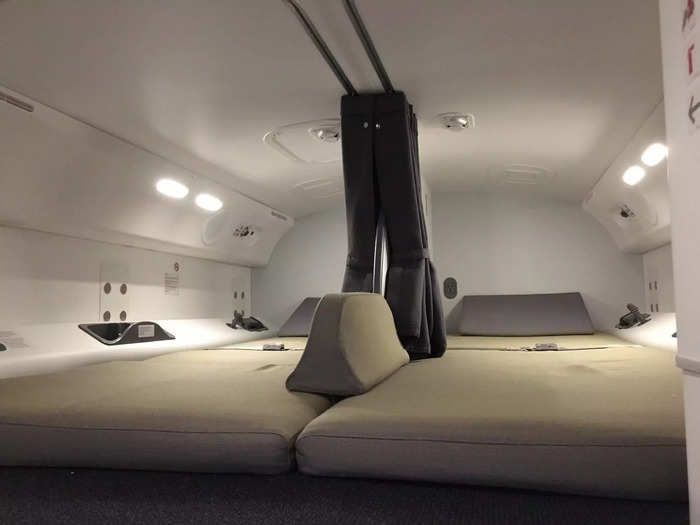
The pilot rest area on a Boeing 787 Dreamliner aircraft.
Benjamin Zhang/Business Insider
Long-haul flights, however, wouldn't be possible without these rest areas due to legal rest requirements. Ultra-long-haul flights like the ones between Singapore and the US can exceed 18 hours and require flight attendants to take shifts serving the cabin.
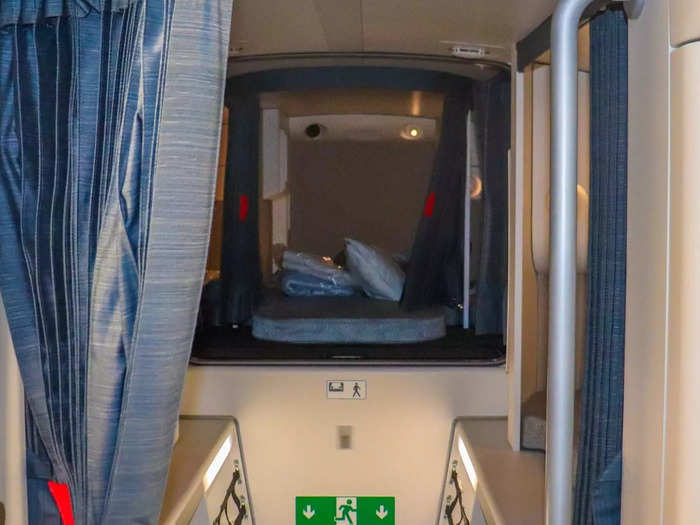
The crew rest area on an Airbus A350-900 XWB aircraft.
Thomas Pallini/Insider
The setting might not be as luxurious as a lie-flat business class seat but it still offers privacy and a brief reprieve from work duties.
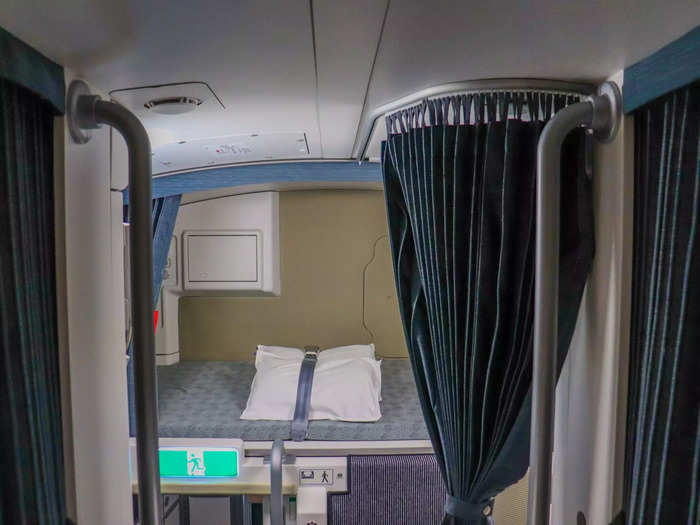
The crew rest area on an Airbus A350-900 XWB aircraft.
Thomas Pallini/Insider
But those with a fear of tight spaces should certainly consider the rest area when contemplating a career as a long-haul flight attendant.
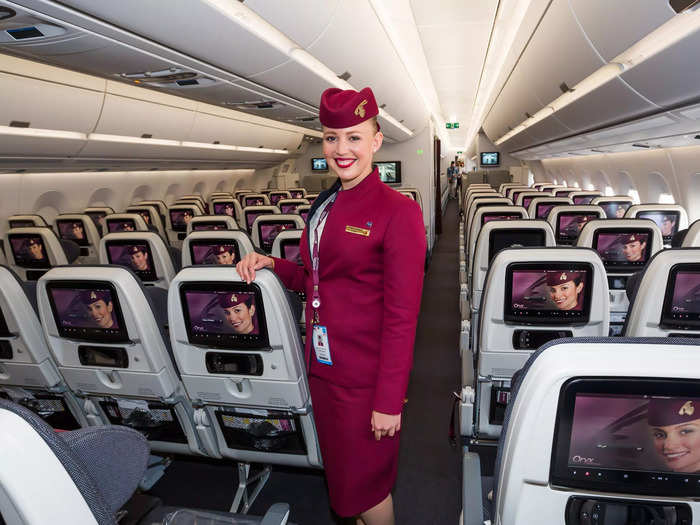
An international flight attendant.
By Dmitry Birin / Shutterstock
READ MORE ARTICLES ON
Popular Right Now
Popular Keywords
Advertisement